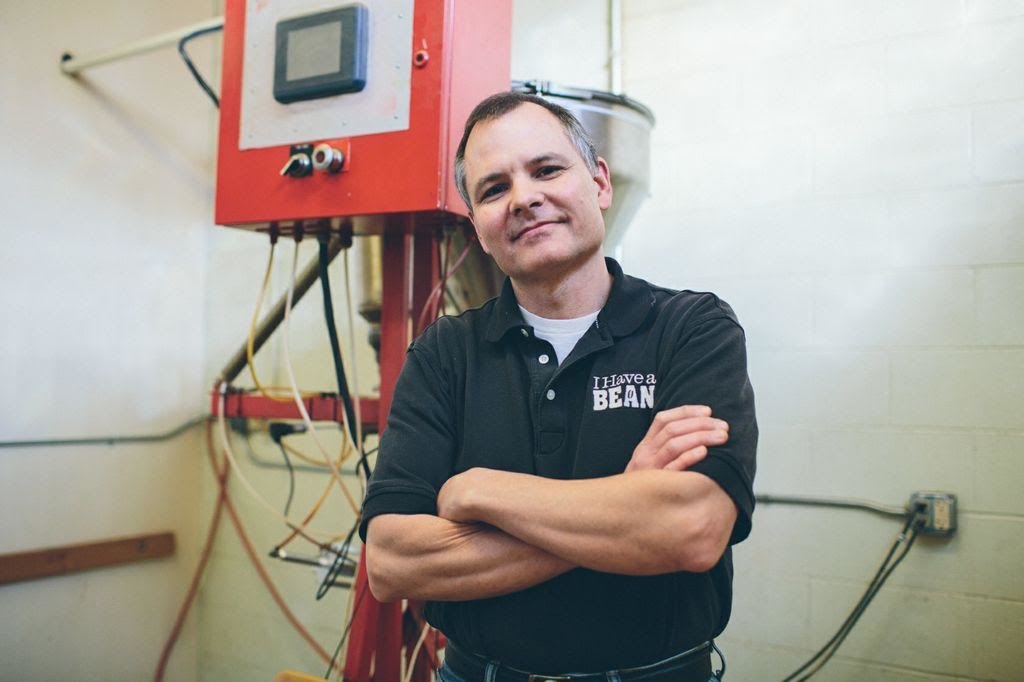Amid political darkness, a bright spot in criminal justice reform
Pete Leonard has employed 35 ex-offenders since 2009 at Second Chance Coffee Company in Wheaton.
Not much is going right in Illinois.
It’s home to the worst population loss in the Midwest, the worst employment recovery in the Midwest, the worst manufacturing climate in the Midwest, the worst credit rating in the nation and the highest property taxes to boot.
It’s not pretty. And solutions to those problems can appear distant.
But in the Chicago suburb of Wheaton, a success story is emerging. And it’s emblematic of one bright spot in the state’s dark political climate: criminal justice reform.

While not as widely discussed as pensions or payrolls, Illinoisans returning to prison is a serious crisis. Nearly 50 percent of ex-offenders end up behind bars again within three years of their release. This cycle of recidivism threatens public safety, wastes human potential and eats up scarce state resources that could be better spent elsewhere.
One of the biggest drivers of this problem is joblessness.
While Illinois has been terrible at fostering a strong jobs climate for residents without criminal records, the statistics on employment among the state’s ex-offenders are shocking. Between 60 and 75 percent of ex-offenders are unemployed a year after release from prison.
Thank goodness for Pete Leonard.
Founder of Second Chance Coffee Company in Wheaton, Leonard has employed 35 ex-offenders since 2009. The mission of his business is to provide opportunities for “post-prison people.” And Second Chance is just that, a business.
Leonard refuses to take government money or tax credits for his work, and he wants his product to speak for itself.
“We only roast and sell the highest-quality coffee you can get, because other employers need to see that,” Leonard said.
“People with a felony conviction are unfortunately perceived by society as being in the bottom 1 percent. They are disregarded. They’re seen as only being capable of doing bad things, or poor-quality things.”
Leonard started roasting coffee beans with his Weber grill, but later invented his own roasting machine used daily by his employees. Leonard plans to scale the business to more than 70 communities across the U.S. in the coming years.
What’s the impact of employment for those ex-offenders?
“It’s immeasurable,” Leonard said.
“When people come here looking for work, they are so used to rejection and dejection that even having someone willing to talk to them is a shock,” he said.
Unfortunately, state policy often reflects this attitude. By law, at least 118 professional licenses can or must be denied to individuals with a criminal record in Illinois. Individuals who have proved rehabilitation and served their time can find their debt to society is never fully paid.
But a bipartisan movement in Springfield is changing that.
In August, Gov. Bruce Rauner signed into law three criminal justice reform bills that will help put more ex-offenders on a path to success.
One bill prohibits the state from denying licenses to ex-offenders who want to become barbers, cosmetologists, hair braiders, nail technicians and more – unless their crime was directly related to the profession in question.
Another reform bill will allow ex-offenders with certain drug offenses to apply for employment with a park district seven years after completing a prison sentence or probation. And finally, Rauner’s signature on Senate Bill 42 ensured that certain ex-offenders will no longer be barred from seeking licensure to become health care professionals.
The governor’s actions reflected backing from Illinoisans of all political stripes.
A recent Illinois Policy Institute-commissioned poll of 500 Illinois registered voters showed Democrats, Republicans and Independents all strongly support granting occupational licenses to qualified individuals who have successfully completed their prison sentences and parole.
But to ensure fewer Illinoisans carry the debilitating scarlet letter of a criminal record, more must be done.
Expanding access to record sealing – where, with few exceptions, only law enforcement may access a person’s criminal record – and expungement, where that record is wiped clean – is one crucial path forward.
“For someone with a felony conviction, they are asked to write the worst thing they’ve ever done on a placard, turn and face their neighbors,” Leonard said.
“If someone has paid their dues and done the time, then why do we continue to hold it over their head?”
